This Performance Coach Beats Busy Schedules With Clockify
“I recommend Clockify — download the app because it’s useful for tracking billable hours.”
– Catie Fenn
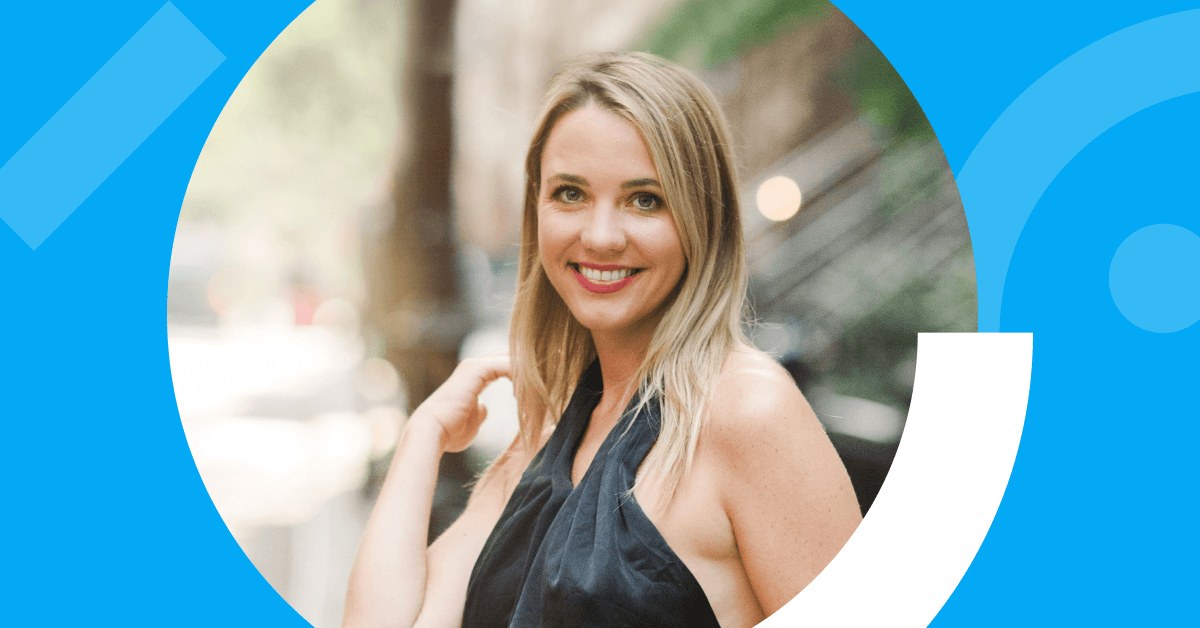
As a lawyer and executive coaching expert, Catie Fenn knows the hardships of managing a busy schedule.
In her transition from law to life coaching, Catie had to overcome many obstacles. She felt like she was wasting a lot of time and wasn’t always mindful of how her work hours were spent.
However, things changed for the better when she started using Clockify. Let’s explore how our time tracker helped Catie take control.
Why Catie started using Clockify
One day, Catie decided to plan and spend her time more intentionally:
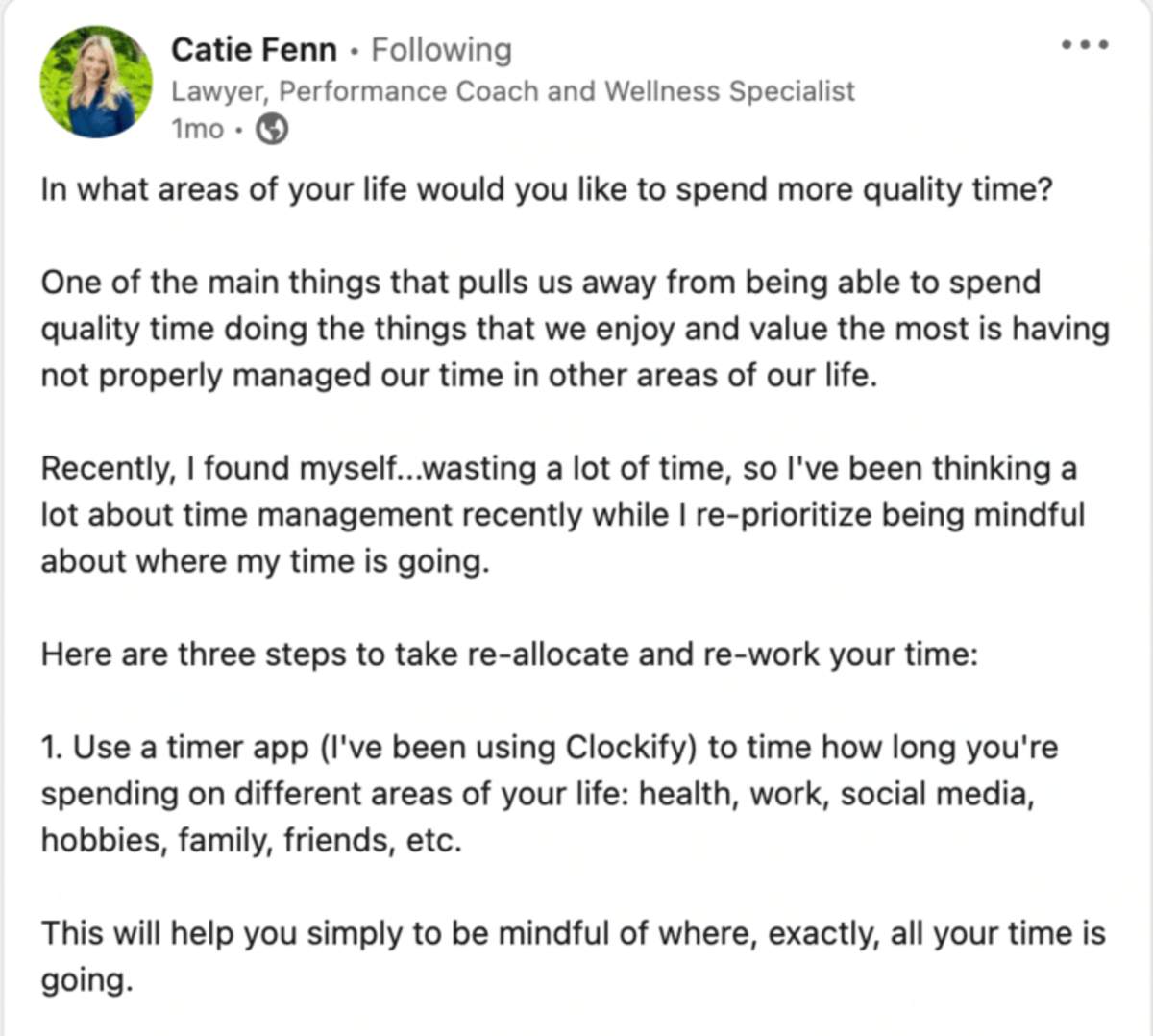
In Catie’s words, Clockify helped her become more mindful of her time:

“I started using the Clockify app because I really wanted to be aware of how much time I was spending on each thing. I started looking at how much time I was spending doing stuff that’s related to my work.”
Benefit #1: Simplest time tracking
When Catie decided to start tracking time, she tried different time trackers. Here’s why she landed on Clockify:

“I found that Clockify was just the most intuitive, the most straightforward, and the easiest solution.”
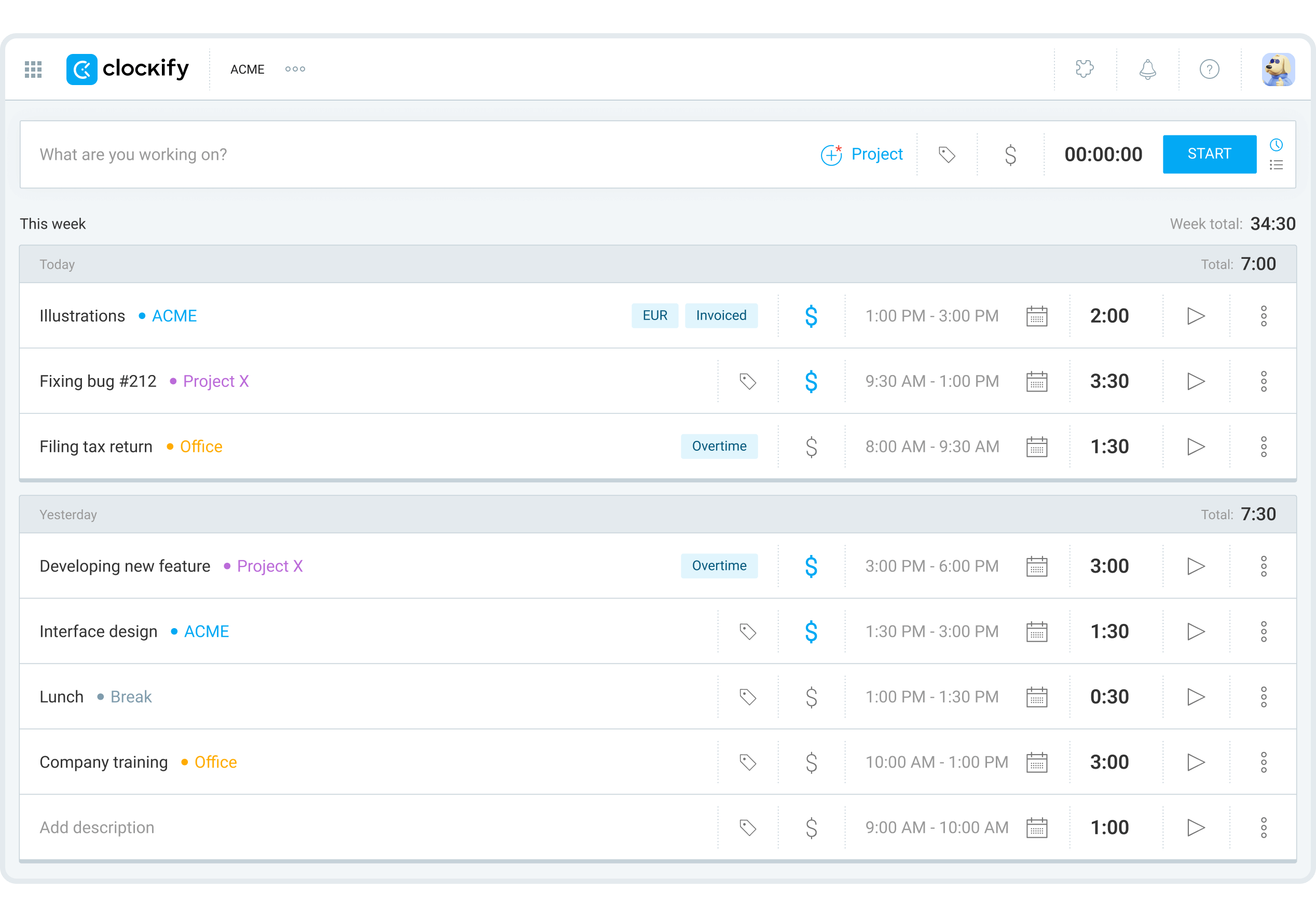
Besides the intuitive user interface, Catie says she likes “that there’s a manual entry and also the timer version.”
She usually uses the manual entry option for her daily tasks that are not urgent to complete and are more creative in nature.
On the other hand, if she needs to fully focus on a task, Catie chooses to start a timer, as it helps her focus on the present task.
✉️ If you’re a Clockify user (or also use Pumble and Plaky, within the CAKE.com Bundle) and you’d like to have your own customer story featured on our blogs, reach out to us at pr@cake.com!
Benefit #2: Lower risk of burnout
A lack of work-life balance often leads to career burnout and all of its negative effects. In Catie’s opinion, it all starts with a lack of autonomy:

“What leads to people burning out or not having any balance is the lack of autonomy — the feeling you don’t have control over your time.”
For Catie, Clockify was crucial because it helped her realize what aspects of her life she was neglecting. In short, as she started tracking her time with Clockify for one area of her life, “all of a sudden, I became so much more aware of other areas of my life.”
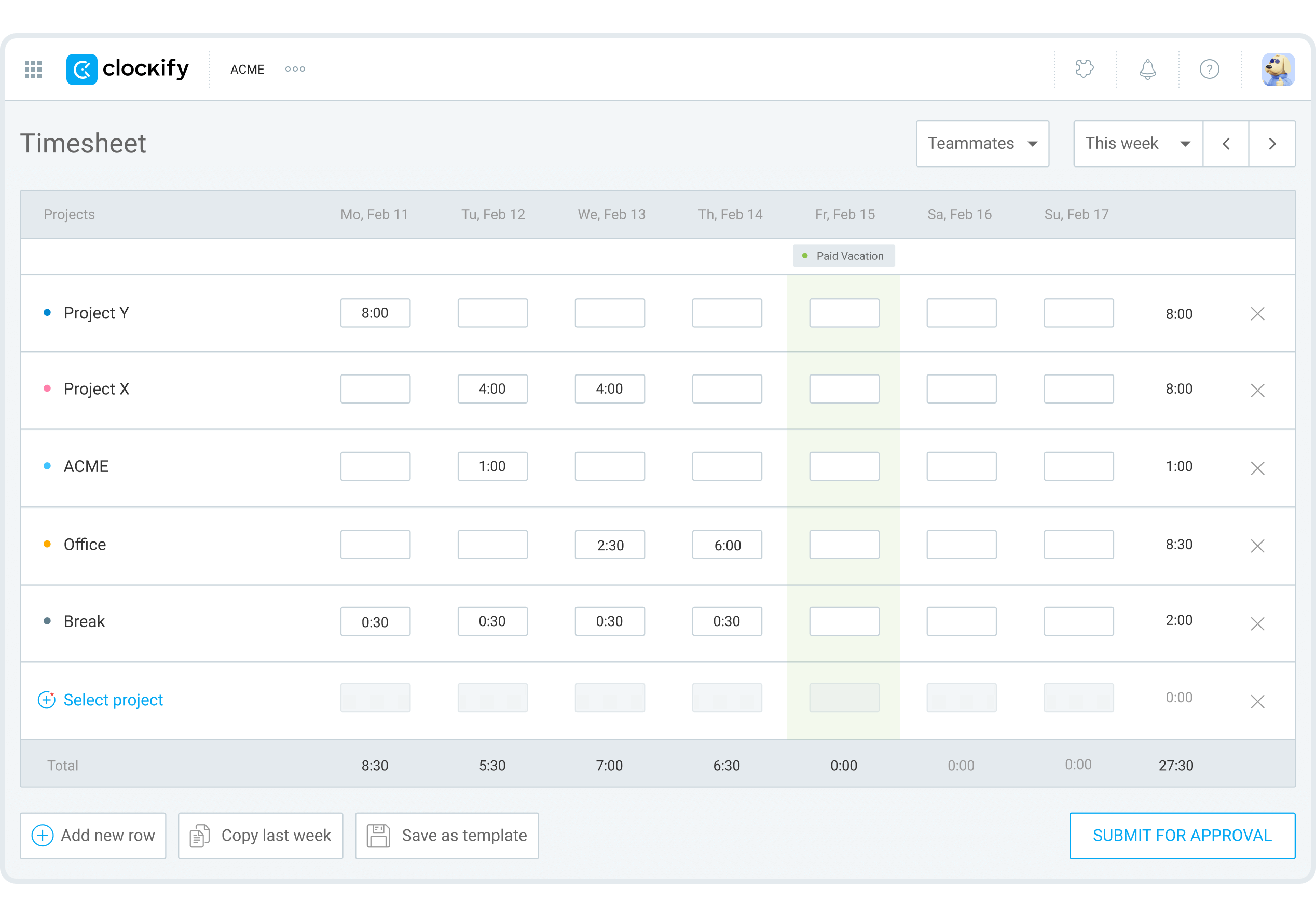
After tracking her time, Catie found it easier to free up her schedule for some much-needed downtime:

“Ultimately, the more you’re tracking your time, the more that you can spend time doing things that you actually like doing — which leads to so much fulfillment.”
Benefit #3: Easier self-improvement
Another thing Catie likes about Clockify is the calendar view and how it makes it easier for her to visualize her schedule:

“It just helps me to see cumulatively — what am I doing each week, or during a whole month? It answers the question — How much time did I spend on this?”
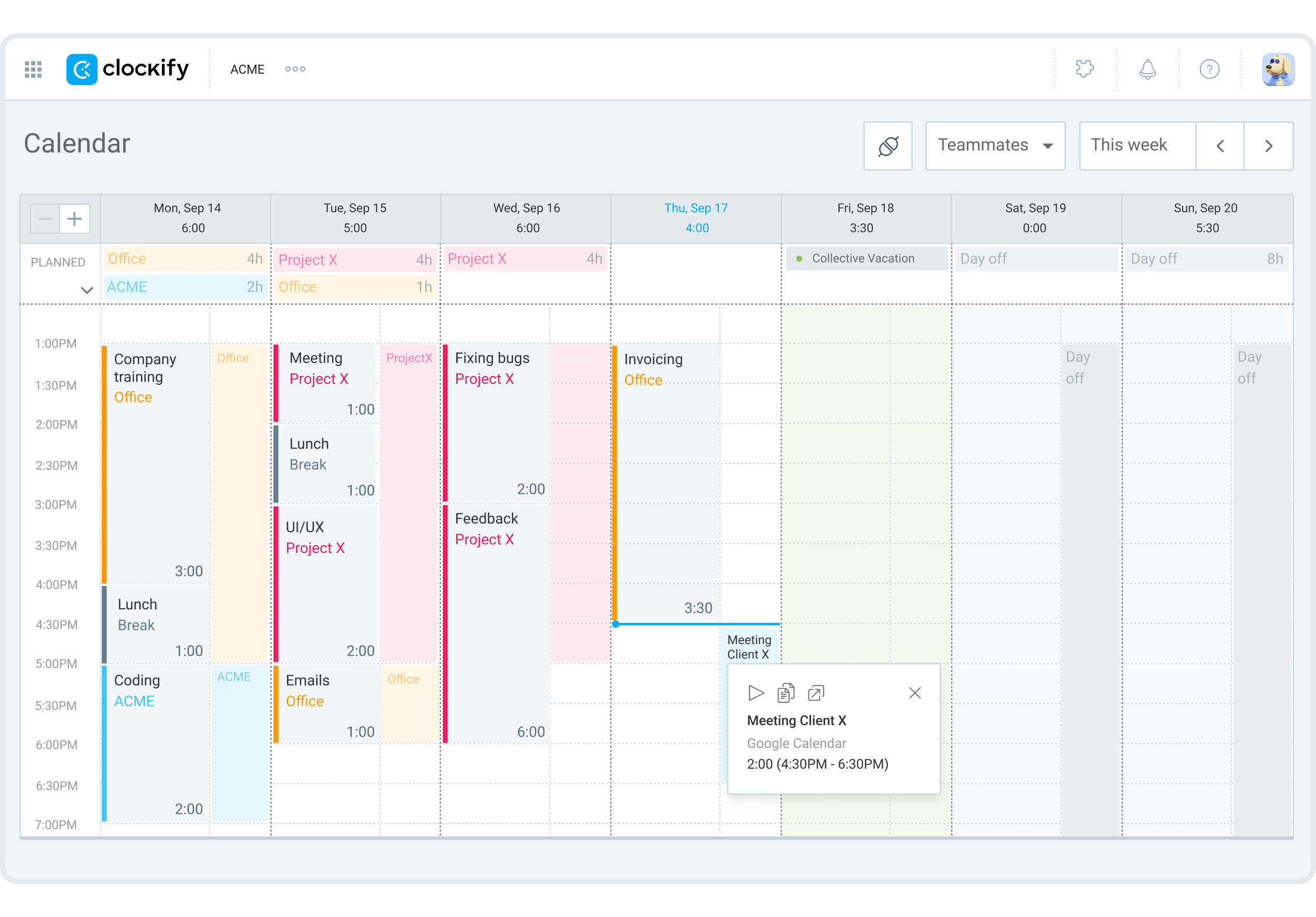
Catie finds these insights quite powerful and believes that having an overview of past activities is great for self-reflection. And self-reflection is crucial because there’s always room for self-improvement.
Benefit #4: More accurate billing
Besides mentoring and coaching, Catie leads workshops for law firms and organizations. During those presentations, another Clockify feature is a must-mention:

“During these lawyer presentations I’m doing, I recommend tools and say — okay guys, you need to download this app — because it’s useful for tracking billable hours.”

Tracking billable and non-billable hours separately can be particularly helpful for lawyers seeking to better understand how they spend their time, both at work and outside of it.
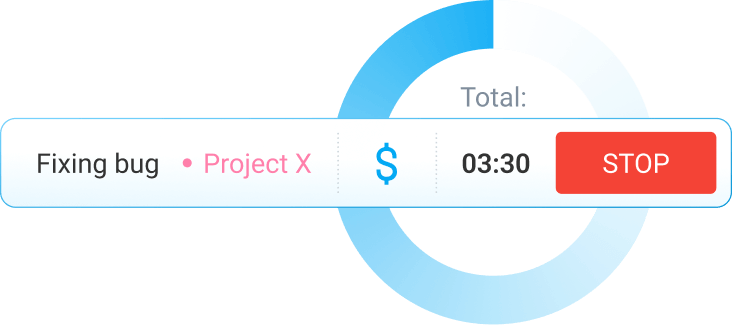
Plan your days better with Clockify
Catie is an outstanding example of someone who has harnessed their full potential in life, and we can all learn from her. Like her, you can use Clockify to:
- Find more free time for your hobbies and loved ones,
- Track billable hours more accurately, and
- Eliminate inefficiencies in your schedule.
Don’t waste your time.